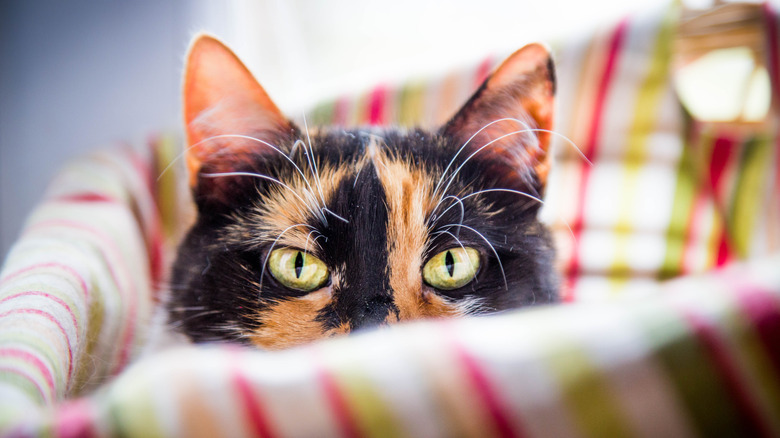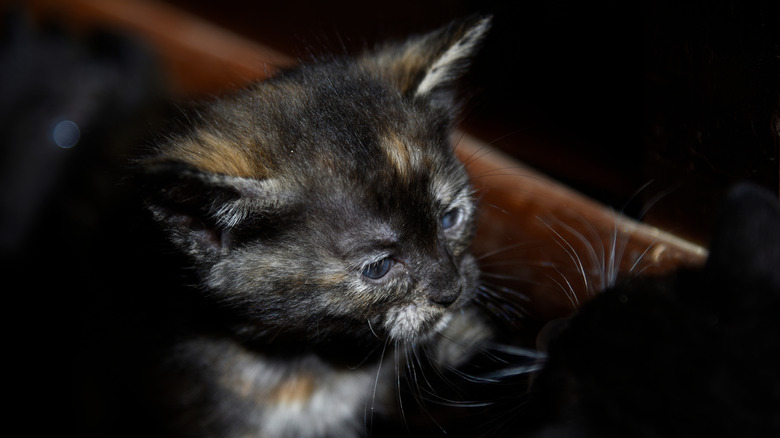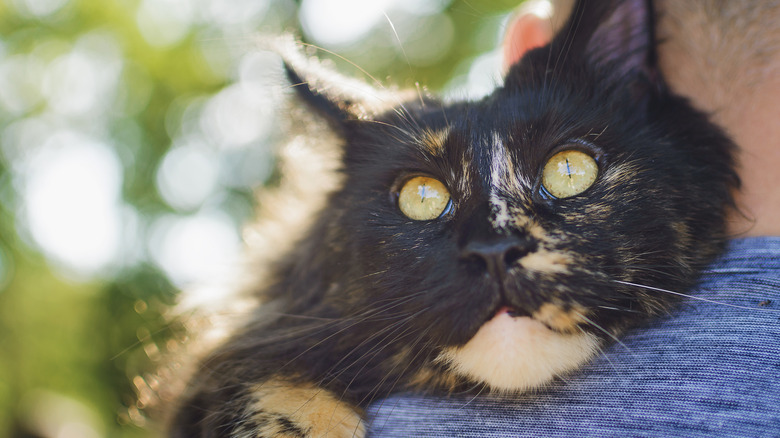Why Male Tortoiseshell Cats Are So Rare (And The High Price You'll Pay For One)
Owning a male tortoiseshell cat is like owning a piece of feline treasure — but it can come with a high price, both financially and emotionally. These remarkable cats are celebrated for their unique coats, but their rarity stems from a genetic quirk that makes them nearly impossible to find, and that can lead to future health issues.
The stunning, patchy fur of tortoiseshell cats reveals a fascinating genetic story. Female cats have two X chromosomes, which means they can carry genes for both black and orange fur colors. During early development, in each cell of the cat's body, one X chromosome is randomly switched off, creating the cat's signature mottled pattern of orange and black patches.
Male tortoiseshell cats are incredibly rare — appearing in just one in 3,000 cats — making them the true "unicorns" of the feline world. This exceptional genetic phenomenon typically occurs through unique conditions like XXY syndrome, where a male cat inherits an extra X chromosome. It can also occur through rare genetic variations such as chimerism (the fusion of two embryos) or mosaicism (a genetic mutation occurring after conception). These unusual genetic configurations allow male cats to display the distinctive tortoiseshell coat pattern, a biological anomaly that makes them truly extraordinary.
Unique challenges of male tortoiseshell cats
The world of male tortoiseshell cats is a complex and challenging one, similar to the unique traits of calico cats. These rare felines, beautiful and unique in their appearance, carry a genetic anomaly that can significantly impact their health and development. Most male tortoiseshell cats are born with an extra X chromosome (XXY), a condition similar to Klinefelter syndrome in humans. This genetic configuration not only gives them their distinctive coat pattern but also brings a host of medical challenges that set them apart from typical male cats.
Male tortoiseshell cats are typically sterile, unable to reproduce due to their unusual chromosomal makeup. Their genetic condition also often leads to fragile bones, making them prone to fractures, as well as hormonal imbalances that can cause obesity, reduced muscle mass, and slower physical development. Additionally, male tortoiseshell cats have higher risks of chronic conditions like diabetes, cardiovascular disease, and joint problems. These challenges frequently result in a shorter lifespan compared to other cats, making regular veterinary care crucial for their survival and well-being.
Male tortoiseshell cats, though rare, may display behaviors tied to their unusual looks — the hallmark "tortitude" for which tortoiseshell cats are known. "Tortitude" describes a feisty, independent spirit, often linked to their distinctive coat genetics. In male tortoiseshells, this spirited personality can be amplified. While these felines may require extra patience, their endearing blend of uniqueness and "tortitude" often rewards dedicated owners with unforgettable companionship.
Why you'll pay a high price for a rare male tortoiseshell kitty
Owning a male tortoiseshell cat isn't just about the financial cost — it's about committing to the care of a rare and often fragile feline. Given their scarcity, male tortoiseshells fetch premium prices, often reaching up to $3,000 from reputable breeders. Although fertile male tortoiseshell cats exist, they are a genetic rarity among rarities. Their sterility amplifies their rarity, keeping them sought after by collectors and cat enthusiasts.
Prospective owners should also brace for long-term investments beyond the usual medical bills that come with owning a cat, which include specialized medical care and tailored diets to address their issues. Extraordinary cat genes can translate into extraordinary medical bills, costing thousands of dollars annually. Male tortoiseshell cats may require more frequent intervention, so owners should prepare themselves emotionally for the challenges and heartbreak that can accompany their care. Still, their unique appearance and spirited personalities can be deeply rewarding for those able to meet their needs.
Ultimately, deciding whether to bring a male tortoiseshell cat into your home involves weighing not only the monetary and medical expenses, but also the emotional toll. If you already own one of these unique cats and you're curious about your own male tortie's genetic makeup, a cat DNA test can provide you with more answers.


